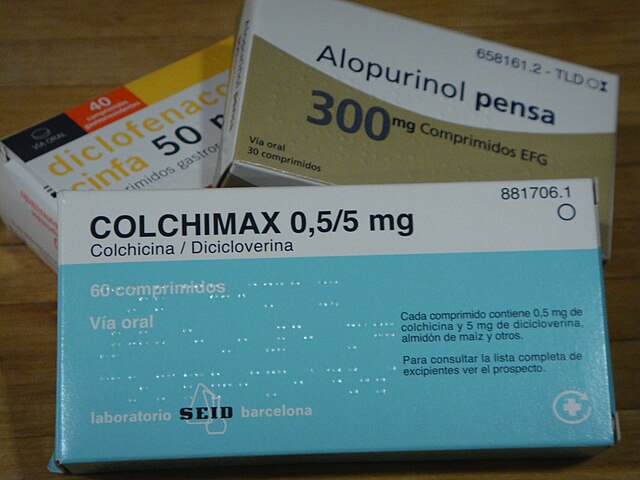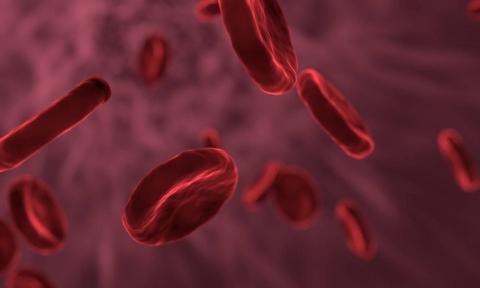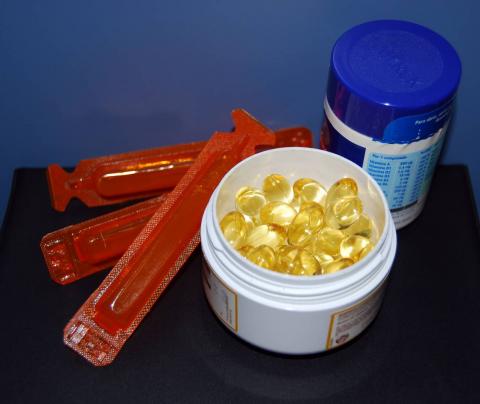CNIC team proposes a new cardiovascular risk factor and a drug to reduce its effects
In a study published in the journal Nature Medicine, a team of researchers from the National Center for Cardiovascular Research (CNIC) proposes a new cardiovascular risk factor to add to those already known. It is clonal hematopoiesis, a phenomenon caused by acquired mutations in blood stem cells. Furthermore, in a separate study published in the European Heart Journal, they suggest that the drug colchicine could serve to reduce its effects.

Carlos Guijarro Herráiz - Colchicina CNIC
Carlos Guijarro Herráiz
Former president of the Spanish Society of Arteriosclerosis and physician in the Internal Medicine Unit of the Hospital Universitario Fundación Alcorcón.
Both articles are very interesting. Specifically, the article published in Nature Medicine demonstrates that clonal hematopoiesis precedes and predicts the development of arteriosclerosis, which supports/suggests a causal role and opens new avenues to consider it as having a predictive/prognostic value and to develop new treatments.
There are, however, a number of nuances that need to be considered:
- Clonal hematopoiesis is already known at least as a 'risk marker' associated with the development of atherosclerosis. However, a 'risk marker' may not be a 'risk factor'. For example, elevated C-reactive protein [CRP] is associated with the development of atherosclerosis (it is a risk marker), but does not cause atherosclerosis (subjects with elevated CRP genetically do not have more atherosclerosis). In contrast, elevated LDL cholesterol or elevated lipoprotein (a) are causative agents of arteriosclerosis. Therefore, although this is not the first time the association has been described, this publication reinforces the potential role of clonal hematopoiesis in the development of arteriosclerosis.
- Descriptive epidemiological studies can never establish demonstrations of causality, only association. That said, the prospective PESA study [on which the article in Nature Medicine is based] demonstrates that clonal hematopoiesis can be detected in patients before the development of arteriosclerosis and that arteriosclerosis develops more intensely in subjects with clonal hematopoiesis. Although this temporal association suggests a causal role, such a strong statement cannot be made. It cannot be ruled out that clonal hematopoiesis is an epiphenomenon and that there is another cause that may on the one hand favor the development of mutations that are expressed as clonal hematopoiesis and on the other an accelerated arteriosclerosis (without the former being the cause of the latter).
Having made these clarifications, the combination of the two articles suggests a very interesting avenue of intervention. Although colchicine has been proposed as a treatment for 'residual inflammatory risk', its effect is modest and we still need better tools to reduce the development of arteriosclerosis, which is, together with cancer, the main cause of death in our country.
We need markers that identify patients in whom colchicine treatment offers potentially greater beneficial effects. The problem with cheap drugs is that the industry will never promote a quality clinical trial, which is why the leadership of independent research groups with public support (such as the CNIC in Spain or several centers in Canada that are evaluating colchicine treatment) is important.
I am currently the president of the Spanish Society of Arteriosclerosis. I have participated in advisory committees and given talks funded by the pharmaceutical industry (in 'modest' amounts): Amgen, Daiichi, Lilly, Ferrer, MSD, Novartis, Sanofi, Servier.
José Antonio Páramo - Colchicina CNIC
José Antonio Páramo
Specialist in Hematology at the Clínica Universidad de Navarra
Research in recent years has shown that clonal hematopoiesis, the result of acquired somatic mutations, is not only a frequent age-related process and a premalignant state, but a condition that predisposes to the development of cardiovascular disease.
The vast majority of mutations in clonal hemopoiesis affect genes involved in epigenetic regulation, such as TET-2. Experimental models with mutation for this gene are associated with increased atherosclerosis. Two recent studies led by Dr. José Javier Fuster of the CNIC, one clinical and the other experimental, demonstrate that clonal hematopoiesis emerges as a new risk factor for atherosclerotic disease, responsible for very relevant clinical pictures such as acute myocardial infarction and stroke, so its detection may have important therapeutic implications.
The clinical study included a PESA study population of more than 4,000 healthy middle-aged individuals, in whom the detection of clonal hematopoiesis was associated with the development of atherosclerosis over time and preceded its onset. Although the mechanisms involved are not precisely known, inflammation seems to play a relevant role. The experimental study in mice with TET-2 mutations showed an increase in atherosclerotic lesions and the most interesting finding was that the administration of colchicine, an anti-inflammatory drug, reduced the size of the lesions. Both studies are of great interest because of the demonstration of the role of clonal hematopoiesis as a new factor in the development of atherosclerosis and the role of anti-inflammatory strategies for the prevention of cardiovascular disease.
Díez-Díez et al.
- Research article
- Peer reviewed
- Clinical trial
- People
Zuriaga et al.
- Research article
- Peer reviewed
- Experimental study



